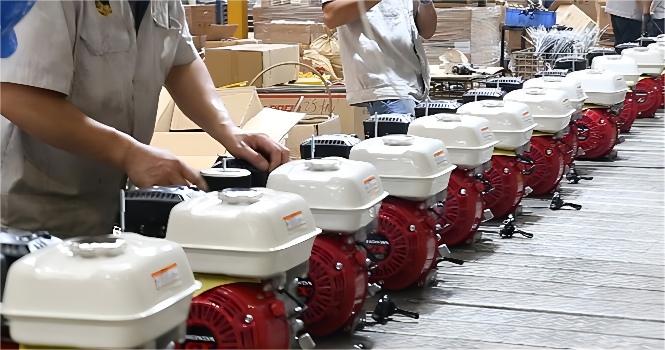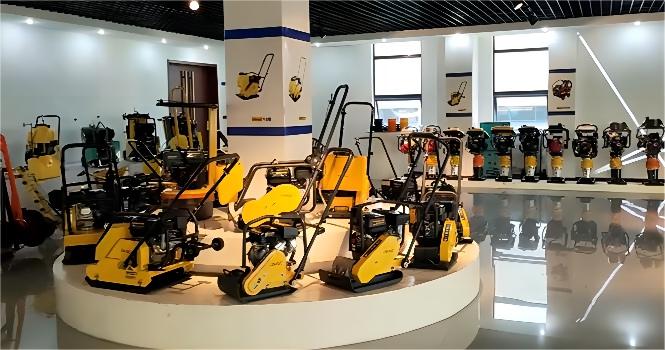Machine Compactor PME-C80
When you are looking for a plate compactor, we can assist you in selecting the most suitable compactor plate for your business.
Overview
The PME-C80 Forward Plate Compactor is designed for professionals and DIY enthusiasts alike, combining powerful performance with robust durability. Equipped with a 64 cm x 42 cm plate and powered by the reliable Honda GX160 engine, this machine is engineered to handle the toughest compacting jobs with ease.
Exceptional Performance
The PME-C80 delivers an impressive centrifugal force of 15 KN, allowing for a maximum compaction depth of 35 cm. With a frequency of 4,200 VPM, it ensures efficient and thorough compaction, making it an indispensable tool for various tasks, from road construction to landscaping projects. Its travel speed of 25 meters per minute further enhances productivity, allowing you to cover up to 420 square meters per hour.
Versatility in Application
Whether you are working on cohesive or granular soils, the PME-C80 excels in maneuvering through tight spaces and challenging terrains. It is ideal for use in constructing pathways, driveways, patios, and other hardscaping projects. The machine’s ability to operate at a maximum inclination angle of 20° ensures stability and precision on sloped surfaces.
Built for Durability
The PME-C80 is built to last, with high-quality materials and construction that can withstand rigorous use. With a gross weight of 85 kg and a net weight of 80 kg, the machine is both sturdy and manageable. The unit comes packaged at 75 cm x 46 cm x 58 cm, making it easy to transport and store. Additionally, the PME-C80 includes a 1-year product warranty, providing peace of mind for professional contractors and homeowners alike.
Applications
- Retaining Walls
- Footings and Foundation Projects
- Landscapes and hardscapes
- Patchwork on Asphalt
- Pipeline Applications
- Road Repair and Trenchwork
- Cohesive Soils and Granular Soils
- Sticky soils – such as clay or clayey silt
- Gravel, sand, silt, clay, or mixed soils
- Base, Subbase, Subgrade, Subsoil
- Backfill Pools, Parks, Cemeteries, and Golf Courses
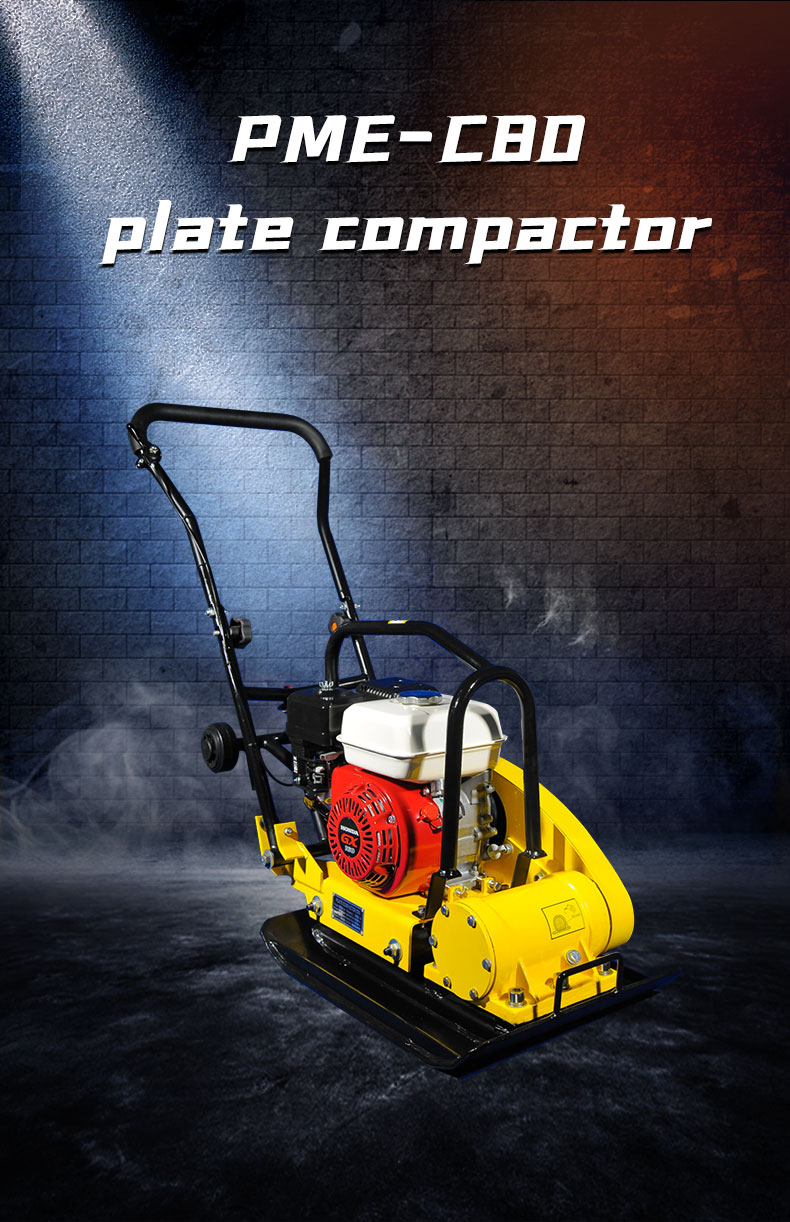
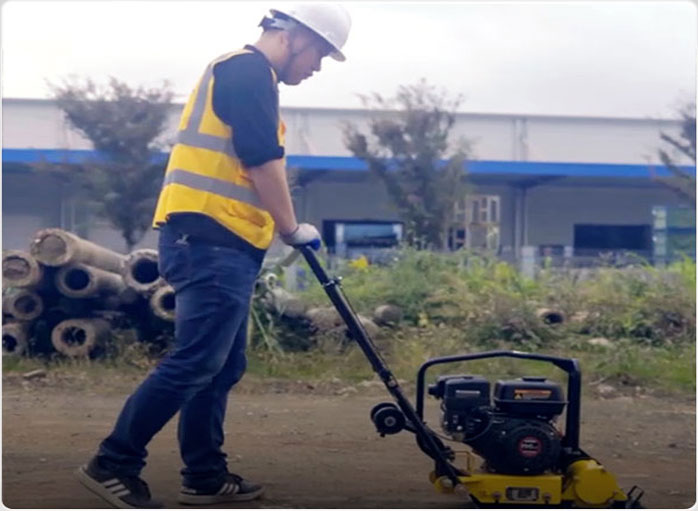
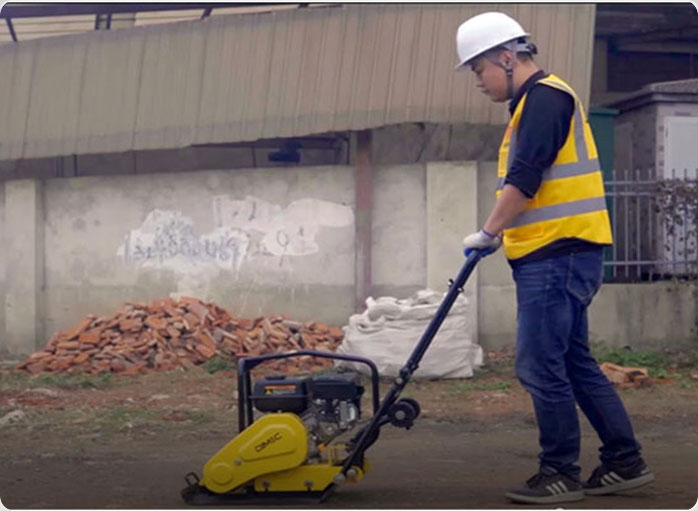
Key Specifications
| Model | Machine Compactor PME-C80 |
|---|---|
| Engine | Honda GX160 |
| Engine type | Air-cooled, single cylinder, 4-stroke, petrol engine / diesel engine |
| Frequency [VPM] | 4200 |
| Centrifugal force [KN] | 15 |
| Plate size (LxW) [cm] | 64x42 |
| Max.compaction depth[cm] | 35 |
| Travel speed [m/min] | 25 |
| Max.inclination angle | 20° |
| N.W./G.W. [kg] | 80/85 |
| Package (LxWxH) [cm] | 75x46x58 |
ADVANTAGE

Low vibration comfortable operation
Heavy-duty shock absorber system that effectively improves operating comfort by reducing shock to arms.
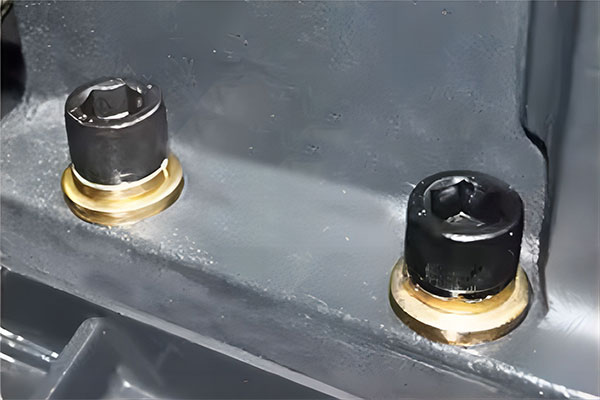
12.9 Grade bolts
High-strength bolts with exceptional durability, providing reliable fastening even under intense pressure and demanding conditions.

High strength engine frame
The material of thickened steel pipe has strong supporting force and stable gravity bearing capacity.

Strong power brand engine
Well-know brand engines Honda, Robin, Loncin low noise, low maintenance, low consumption.
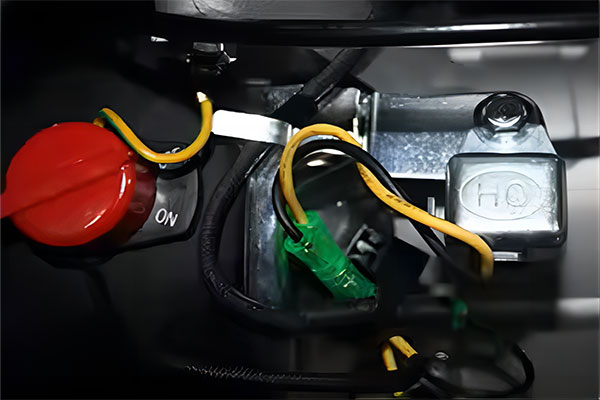
Low oil sensor
Advanced low oil sensor technology ensures automatic engine protection by preventing operation when oil levels are insufficient, extending engine life.
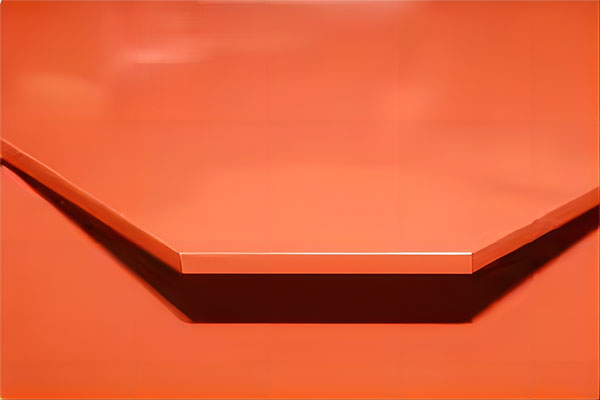
Professional spraying process
Utilizes advanced spraying techniques to deliver a smooth, even coating that resists wear, corrosion, and fading, ensuring long-lasting protection and aesthetic appeal.
QUESTIONS & ANSWERS
A plate compactor is typically used for smaller areas and granular materials, using vibration to compact. A road roller, on the other hand, is used for large surfaces like roads and relies on its weight, often combined with vibration, to compact soil, gravel, or asphalt.
Not all compactors are suitable for every soil type. For example, jumping jack compactors are better for cohesive soils like clay, while plate compactors are more effective on granular soils.
Regular maintenance is crucial. It’s recommended to service your compactor according to the manufacturer’s guidelines, typically after a certain number of operating hours.
Signs that your compactor may need repair include loss of vibration, unusual noises, engine problems, and visible wear on the compaction plate or drum.
Modern compactors are designed to be more energy-efficient and environmentally friendly, with features that reduce emissions and noise. Additionally, trash compactors help reduce the volume of waste, promoting recycling.
Other Similar Products
20+ Years of Experience
Construction Machine Manufacturer
Professional manufacturer of small construction machinery, main products include plate compactor, tamping rammer, road roller,floor saw, concrete vibrator, generator etc.
Forward Plate Compactor
When it comes to construction and landscaping, having the right tools can make all the difference. One such indispensable piece of equipment is the forward plate compactor.
Whether you’re working on paving, landscaping, or foundation projects, understanding how to use and maintain this machine is crucial.
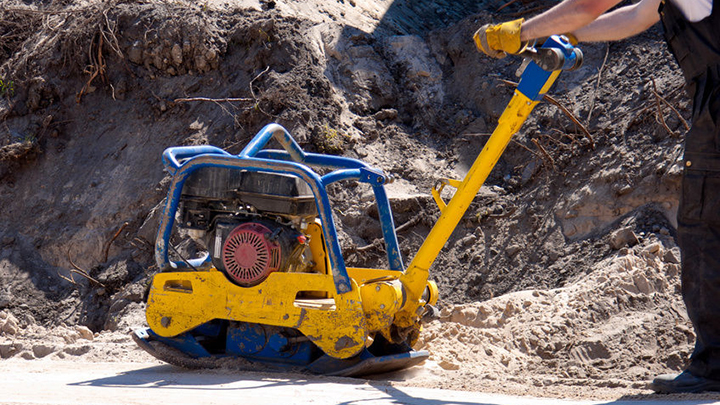
What is a Machine Compactor and How Does It Work?
Introduction
Have you ever wondered how roads and construction sites maintain such firm and stable surfaces? Or how waste is compressed to create more space in dumpsters? The answer often lies in the use of machine compactors, powerful tools that play a crucial role in various industries, from construction to waste management. In this article, we’ll dive deep into the world of machine compactors, exploring what they are, how they work, and why they’re so essential.
What is a Machine Compactor?
A machine compactor is a piece of equipment designed to compress materials, reducing their volume and making them more stable and solid. Whether you’re dealing with soil, asphalt, concrete, or waste, compactors help achieve the desired density and firmness needed for construction, road building, or waste disposal. These machines come in various forms, each suited to different tasks and materials.
History of Machine Compactors
The concept of compaction dates back to ancient times, where rudimentary tools like wooden tampers were used to firm up soil for building foundations. However, the evolution of machine compactors began in the late 19th and early 20th centuries, coinciding with the rise of industrialization. Early steam-powered road rollers marked the beginning of mechanized compaction, and over the decades, technology has advanced to include a wide range of modern compactors equipped with engines, hydraulics, and sophisticated control systems.
Types of Machine Compactors
Machine compactors come in several types, each designed for specific applications. Let’s explore some of the most common ones:
Plate Compactors
Plate compactors are widely used in small to medium-scale construction projects. They feature a heavy, flat plate that vibrates as it moves over the material, compacting it through a combination of force and vibration. These compactors are ideal for compacting granular soils, asphalt, and paving stones.
Jumping Jack Compactors
Jumping jack compactors, also known as rammers, are more specialized. They have a smaller footprint and are particularly effective in compacting cohesive soils, like clay, where a higher impact force is required. The compactor’s name comes from its vertical movement, resembling the action of a jumping jack.
Road Rollers
Road rollers are perhaps the most iconic type of compactor, often seen in large construction and road-building projects. These machines feature large, heavy drums that roll over the material, compressing it through sheer weight and sometimes vibration. Road rollers are used for compacting soil, gravel, asphalt, and other large surfaces.
Trash Compactors
Trash compactors are used primarily in waste management to compress and reduce the volume of waste materials. These machines can be found in both residential and industrial settings, helping to minimize the space taken up by waste and making it easier to manage and dispose of.
How Does a Machine Compactor Work?
The basic working principle of a machine compactor revolves around the application of force to reduce the volume of the material being compacted. This force can be generated by weight, vibration, or both, depending on the type of compactor.
Force and Vibration: In most compactors, the combination of force and vibration is key to achieving effective compaction. The force helps to push the particles of the material closer together, while the vibration reduces friction between the particles, allowing them to settle into a more compact arrangement.
Operation Differences: For example, a plate compactor uses rapid vibrations to compact loose materials, making it suitable for paving and landscaping. On the other hand, a road roller relies more on its weight, often aided by vibration, to compress large areas of soil or asphalt.
Components of a Machine Compactor
To understand how a machine compactor functions, it’s helpful to look at its main components:
- Engine: Powers the compactor, providing the necessary force and energy for operation.
- Compaction Plate or Drum: The part that directly contacts the material being compacted. Its size and shape vary depending on the type of compactor.
- Vibration Mechanism: Generates the vibrations that help compact the material, usually through an eccentric rotating mass.
- Control Systems: Allow the operator to manage the machine’s speed, direction, and compaction force, ensuring the job is done effectively and safely.
Applications of Machine Compactors
Machine compactors are versatile tools used in a variety of applications:
Construction Industry
In construction, compactors are indispensable for preparing foundations, roads, and other structures. They ensure that the soil or material is dense and stable enough to support heavy loads.
Soil and Asphalt Compaction: For road construction, compactors are used to compact soil, gravel, and asphalt, creating a solid base and a smooth surface.
Concrete Preparation: Before pouring concrete, compactors are often used to prepare the ground, ensuring it’s firm and level.
Waste Management
Trash compactors help reduce the volume of waste, making it easier to handle and dispose of. They are commonly used in residential buildings, commercial establishments, and industrial facilities.
Landscaping
In landscaping, compactors are used to compact soil and other materials, creating stable bases for patios, walkways, and other outdoor structures.
Benefits of Using Machine Compactors
Using machine compactors offers several benefits:
Increased Efficiency: Compactors make it easier and faster to achieve the desired material density, increasing productivity on construction sites and in waste management.
Improved Material Stability: Compacted materials are more stable and less likely to shift or settle over time, which is crucial for building durable structures.
Reduction of Voids: Compaction helps eliminate voids and air pockets in the material, which can weaken it and lead to structural failures.
Safety Considerations
Operating a machine compactor safely requires adherence to certain guidelines:
Operating Guidelines: Always follow the manufacturer’s instructions and ensure the operator is properly trained.
Common Hazards: Be aware of potential hazards like machine rollovers, flying debris, and noise. Use personal protective equipment (PPE) and maintain a safe working environment to minimize risks.
Maintenance of Machine Compactors
Regular maintenance is key to keeping a machine compactor in good working condition:
Inspection and Servicing: Regularly inspect the machine for wear and tear, and service it according to the manufacturer’s schedule.
Troubleshooting: Address common issues like engine problems, vibration loss, or hydraulic failures promptly to avoid downtime.
Extending Lifespan: Proper maintenance, such as keeping the machine clean and storing it correctly, can significantly extend its lifespan.
Choosing the Right Machine Compactor
Selecting the right machine compactor depends on several factors:
Project Size: Consider the scale of your project when choosing a compactor. Larger projects may require heavier, more powerful compactors.
Material Type: Different materials require different compaction methods. For example, granular soils are best compacted with a plate compactor, while cohesive soils may need a jumping jack.
Features and Specifications: Compare features like compaction force, vibration frequency, and plate or drum size to find the best machine for your needs.
Conclusion
Machine compactors are vital tools in construction, waste management, and landscaping, providing the necessary force to compact materials efficiently. Understanding the different types of compactors and their applications helps ensure that you choose the right machine for the job, improving productivity and results. As technology advances, compactors are becoming more efficient, environmentally friendly, and easier to operate, making them an essential part of modern industrial practices.
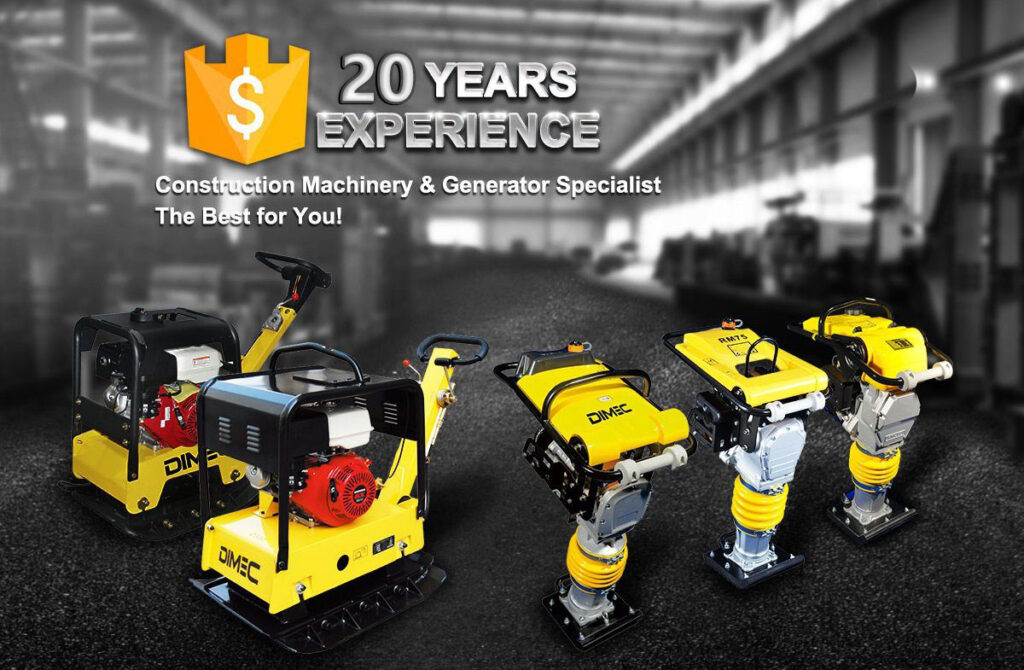
About Us
Wuxi Pinnacle Mechanical Equipment Co., Ltd. (PME) As a first-class specialty enterprise we serve global clients. PME specialize on production of plate compactor, tamping rammer, floor saw, concrete vibrator for global construction industry. We also produce engine, generator, and water pump. PME’s strengths are rooted from our strong team and rich resources.
We have complete production and assembly lines for different machines. There is a team of chief engineers, senior technicians and QC inspectors, equipped with a variety of finishing, spare parts inspection and product testing equipment, to safeguard production and innovation. Thus, we can control every step of production, from finish machining of spare parts, steel plate cutting and welding, spraying paint, all the way to product assembly. This results in effective product quality control.
With more than 20 years of exporting experience, PME has been exporting to over 68 countries and regions including North America, South America, Europe, Southeast Asia, Middle East, Africa. We also form strategic corporations with many multinational companies.
Factory Show
Let our expertise in custom Forward Plate Compactor take your projects to the next level.
Why Choose Us
Professional construction machinery manufacturer with OEM service
We are a leading manufacturer in the construction machinery industry, offering top-notch Original Equipment Manufacturer (OEM) services. Our commitment to innovation and precision engineering ensures that our machinery meets the specific needs of our clients, providing customized solutions that enhance efficiency and performance on the job site.
20 years production and exportation experience
With two decades of experience in production and exportation, we have built a strong reputation for delivering reliable and high-quality construction equipment worldwide. Our extensive knowledge and expertise in the industry enable us to understand the unique challenges of different markets, ensuring our products are tailored to meet global standards.
20+ types of construction site equipment are available for selection
We offer a diverse range of over 20 types of construction site equipment, catering to various industry needs. From heavy-duty machinery to specialized tools, our product lineup is designed to support every phase of construction, providing our clients with the flexibility to choose the right equipment for their projects.
10+ years QC monitor products quality
Our rigorous quality control processes have been refined over more than 10 years, ensuring that every piece of equipment we produce meets the highest standards. Our dedicated QC team meticulously monitors every stage of production, guaranteeing that our products deliver consistent performance and durability in the field.
8+ years experienced skilled workers
Our team comprises highly skilled workers with over 8 years of experience in the construction machinery industry. Their expertise and dedication are reflected in the precision and craftsmanship of our products, ensuring that every detail is executed to perfection.
8 workshops, 12 production lines
With 8 state-of-the-art workshops and 12 production lines, our manufacturing capabilities are designed to meet large-scale demands efficiently. Our advanced facilities allow us to maintain a streamlined production process, ensuring timely delivery of high-quality machinery to our clients around the world.
Unlock Superior Construction Efficiency with Our Expertly Engineered Machinery
Discover a world of advanced construction equipment tailored to meet the demands of modern job sites. With 20 years of industry experience and a commitment to quality, our machinery is designed to boost productivity and ensure reliability in every project. Explore our diverse range and experience the difference of precision-engineered solutions.





